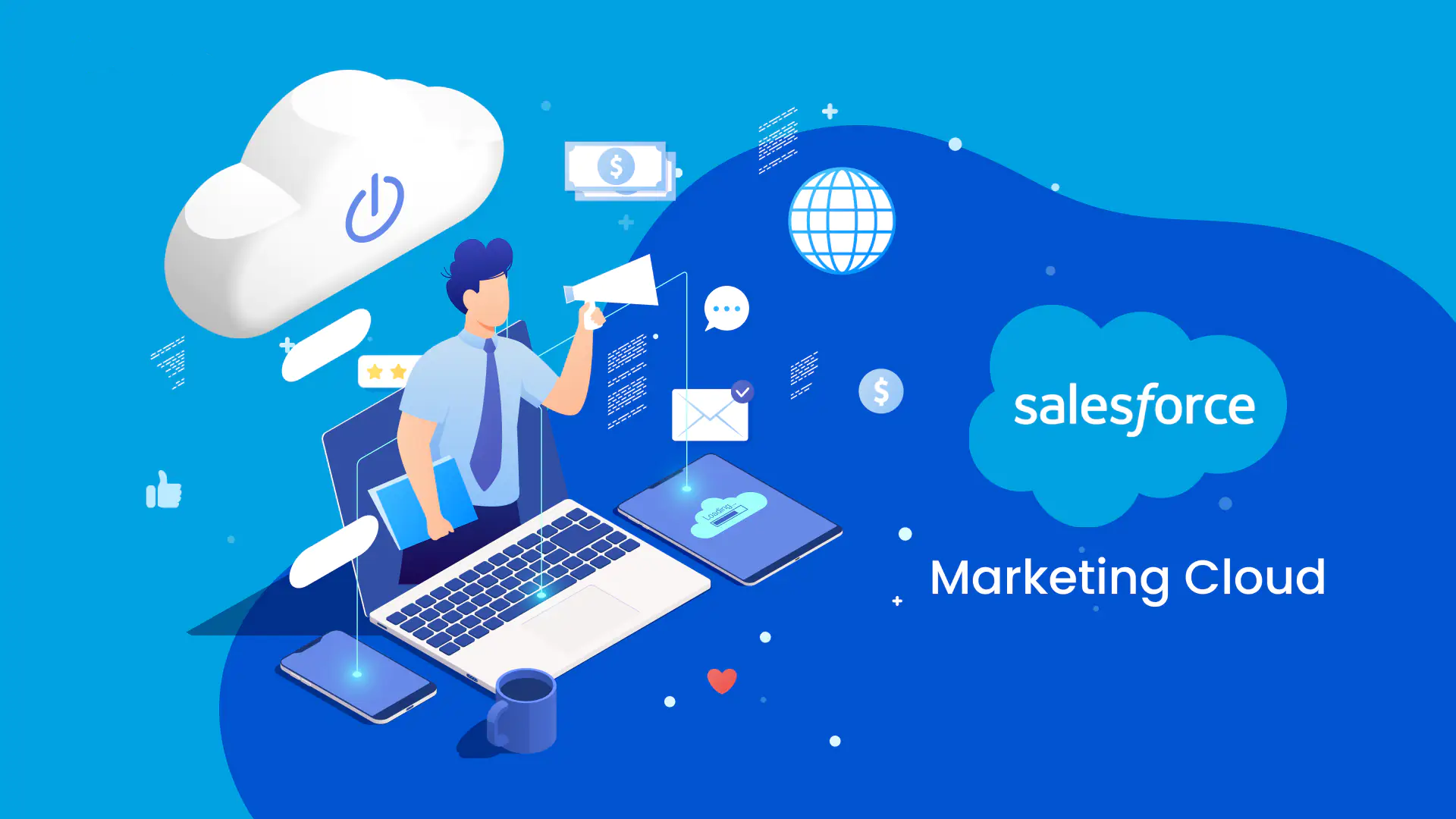In today’s rapidly evolving digital landscape, businesses are seeking agile solutions to meet their Salesforce development and support needs. One such approach is Salesforce IT staff augmentation, where companies leverage external experts to fill specific roles within their in-house teams. Choosing the right partner for this service can significantly impact project timelines, costs, and overall success.
To help you make an informed decision, here are the key skills and attributes to look for when selecting a Salesforce IT staff augmentation partner.
1. Salesforce Technical Proficiency
The primary factor in selecting a partner is their technical expertise in Salesforce. Since Salesforce is a vast platform with numerous products (like Sales Cloud, Service Cloud, Marketing Cloud, and Commerce Cloud), it’s essential to ensure that the partner’s staff has strong technical capabilities.
Key Skills to Look for:
- Apex Programming: Proficiency in developing custom logic using Apex.
- Visualforce & Lightning Web Components (LWC): Experience in building user interfaces that enhance user experience.
- Salesforce Admin Skills: Ability to handle system configurations, workflows, process automation, and security controls.
- Integration Capabilities: Familiarity with integration tools like MuleSoft and knowledge of APIs (REST/SOAP) to connect Salesforce with third-party systems.
Why It Matters: A skilled technical team ensures smooth execution of customizations, seamless integrations, and error-free workflows, all of which are crucial for business success.
2. Industry-Specific Knowledge
Your Salesforce IT staff augmentation partner should have experience working within your industry. Each industry has unique requirements, regulatory compliance, and business processes, and a partner with industry-specific knowledge can better understand and address these challenges.
Why It Matters: Industry experts offer tailored solutions rather than generic approaches, ultimately improving project efficiency. For example, Salesforce implementations in healthcare, finance, or manufacturing have significantly different workflows, and industry experience ensures faster onboarding and fewer errors.
3. Problem-Solving & Critical Thinking
In Salesforce projects, unexpected challenges arise, whether it’s a bug in a custom application or issues with third-party system integrations. The partner you choose should have a team with a problem-solving mindset, capable of diagnosing issues and implementing solutions quickly.
Key Skills to Look for:
- Root Cause Analysis (RCA): Ability to identify and resolve the root causes of issues rather than just treating the symptoms.
- Innovative Thinking: Crafting creative solutions to complex technical problems.
- Agility & Flexibility: Adapting quickly to changes in project scope, timelines, or requirements.
Why It Matters: Without a problem-solving mindset, projects can get stuck in endless loops of bug fixes. A strong partner will identify and resolve issues efficiently, reducing downtime and ensuring smooth project execution.
4. Certifications & Continuous Learning
Certifications are a clear sign of a partner’s commitment to excellence. Salesforce certifications indicate that the partner’s staff is up-to-date with the latest features, best practices, and technological advancements. Look for partners with a track record of encouraging continuous learning for their employees.
Must-Have Certifications:
- Salesforce Administrator
- Salesforce Platform Developer I & II
- Salesforce App Builder
- Salesforce Marketing Cloud Consultant
- MuleSoft Certified Developer (for integration projects)
Why It Matters: Certified professionals reduce the risk of errors, deliver projects faster, and ensure compliance with Salesforce’s latest updates. Continuous learning means the team is always ready to leverage the latest tools and features to your advantage.
5. Communication & Collaboration Skills
Clear communication and collaboration between the augmented staff and your internal team are essential for project success. A partner that prioritizes transparency, open dialogue, and collaborative work ensures that expectations are met at every project milestone.
Key Skills to Look for:
- Effective Communication: Ability to explain technical details in simple terms for non-technical stakeholders.
- Team Collaboration: Willingness to work as an extension of your internal team.
- Proactive Reporting: Regular updates and timely status reports on project progress.
Why It Matters: Poor communication can lead to project delays, misunderstandings, and increased costs. A partner with clear and open communication ensures project alignment, shared goals, and faster issue resolution.
6. Agile & DevOps Practices
Agility is key to Salesforce development, as business requirements often change mid-project. Look for a partner that follows agile methodologies to ensure flexibility. Additionally, DevOps expertise is crucial for faster software development and deployment cycles.
Key Skills to Look for:
- Agile Scrum Mastery: Ability to work with sprints, daily stand-ups, and iterative development.
- CI/CD Knowledge: Implementing continuous integration and continuous deployment pipelines for faster and more reliable code releases.
- Version Control: Familiarity with Git, GitHub, or Bitbucket to manage code changes.
Why It Matters: Agile methodologies enable quicker adjustments, while DevOps automation reduces errors during deployments, ensuring faster releases and more stable products.
7. Experience with Salesforce Integrations
Salesforce rarely works in isolation. Most companies need to connect Salesforce to ERP, CRM, financial systems, or custom business apps. Your partner should have a proven track record of handling Salesforce integrations efficiently.
Integration Tools to Look for:
- MuleSoft (for complex enterprise integrations)
- Heroku Connect (for managing customer apps)
- Third-Party Apps (like HubSpot, Mailchimp, or Slack)
Why It Matters: Integrations enable a 360-degree view of your customer data, enhance productivity, and streamline operations. A partner with strong integration experience can help you avoid data silos.
8. Data Management & Security
Data is at the heart of Salesforce. Your partner should prioritize data security, backup, and migration. Since security breaches can have severe consequences, they should also adhere to data protection regulations like GDPR and CCPA.
Key Skills to Look for:
- Data Migration Expertise: Transferring large volumes of legacy data to Salesforce.
- Data Security: Ensuring encryption, masking, and secure access controls for sensitive data.
- Data Backup & Disaster Recovery: Preparing for data loss with backup and recovery processes.
Why It Matters: A lack of focus on data security could expose your business to lawsuits and data breaches. With proper data governance and security measures in place, you can protect sensitive customer information and build trust.
9. Cost-Effective & Scalable Resources
Staff augmentation should be cost-effective and offer scalability to meet changing project needs. Look for partners who offer flexible contracts, allowing you to scale up or down the number of Salesforce experts as required.
What to Look for:
- Flexible Engagement Models: Pay-as-you-go, fixed-cost, or retainer-based models.
- Onshore, Offshore, and Hybrid Teams: Access to global talent at a lower cost.
Why It Matters: Flexibility in pricing and engagement lets you scale your team as business needs evolve, saving costs and ensuring you only pay for what you use.
10. Post-Deployment Support & Maintenance
After the project launch, maintenance and support are vital to handle post-go-live issues. Look for a partner who offers support services, as it guarantees ongoing enhancements and immediate troubleshooting.
What to Look for:
- Bug Fixing: Prompt resolution of issues post-deployment.
- System Enhancements: Continuous system upgrades and process optimization.
- Ongoing Training: Upskilling your in-house staff to manage Salesforce after handover.
Why It Matters: Long-term support ensures your Salesforce system remains functional, updated, and secure, with minimal disruptions to your business.
Conclusion
Selecting the right Salesforce IT staff augmentation partner is a strategic move that can significantly influence project success. By focusing on technical skills, industry knowledge, certifications, integration capabilities, and security expertise, you can ensure a seamless partnership. Look for a partner that not only fills staffing gaps but also becomes a trusted collaborator who works in sync with your internal teams.
If you’re looking for a trusted Salesforce IT staff augmentation partner, reach out to Winklix.com. Our team of certified Salesforce experts is ready to help you meet your development goals with agility, precision, and unmatched expertise.
Need help finding the right Salesforce team? Contact us today to discuss your needs!
Would you like to add any specific call-to-action or company highlights for Winklix.com? Let me know, and I can customize it further.




